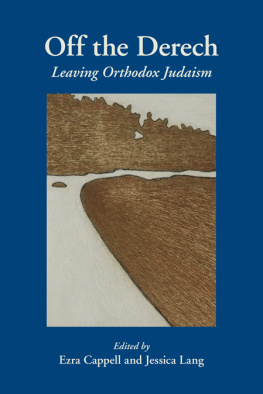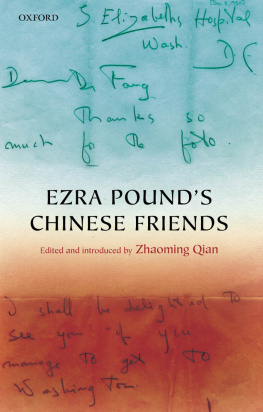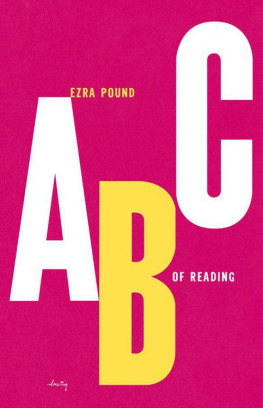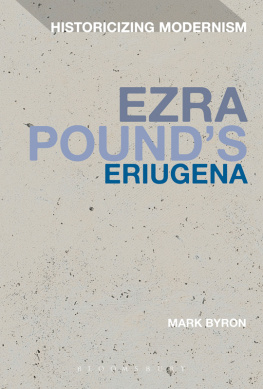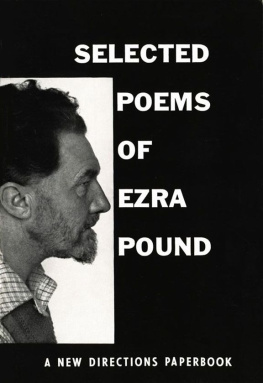Ezra Cappell - Off the Derech
Here you can read online Ezra Cappell - Off the Derech full text of the book (entire story) in english for free. Download pdf and epub, get meaning, cover and reviews about this ebook. year: 2020, publisher: State University of New York Press, genre: Home and family. Description of the work, (preface) as well as reviews are available. Best literature library LitArk.com created for fans of good reading and offers a wide selection of genres:
Romance novel
Science fiction
Adventure
Detective
Science
History
Home and family
Prose
Art
Politics
Computer
Non-fiction
Religion
Business
Children
Humor
Choose a favorite category and find really read worthwhile books. Enjoy immersion in the world of imagination, feel the emotions of the characters or learn something new for yourself, make an fascinating discovery.
- Book:Off the Derech
- Author:
- Publisher:State University of New York Press
- Genre:
- Year:2020
- Rating:4 / 5
- Favourites:Add to favourites
- Your mark:
- 80
- 1
- 2
- 3
- 4
- 5
Off the Derech: summary, description and annotation
We offer to read an annotation, description, summary or preface (depends on what the author of the book "Off the Derech" wrote himself). If you haven't found the necessary information about the book — write in the comments, we will try to find it.
Off the Derech — read online for free the complete book (whole text) full work
Below is the text of the book, divided by pages. System saving the place of the last page read, allows you to conveniently read the book "Off the Derech" online for free, without having to search again every time where you left off. Put a bookmark, and you can go to the page where you finished reading at any time.
Font size:
Interval:
Bookmark:

Off the Derech
SUNY SERIES IN C ONTEMPORARY J EWISH L ITERATURE AND C ULTURE
EZRA CAPPELL, EDITOR
Dan Shiffman, College Bound:
The Pursuit of Education in Jewish American Literature, 18961944
Eric J. Sundquist, editor, Writing in Witness:
A Holocaust Reader
Noam Pines, The Infrahuman: Animality in Modern Jewish Literature
Oded Nir, Signatures of Struggle:
The Figuration of Collectivity in Israeli Fiction
Zohar Weiman-Kelman, Queer Expectations:
A Genealogy of Jewish Womens Poetry
Richard J. Fein, translator, The Full Pomegranate:
Poems of Avrom Sutzkever
Victoria Aarons and Holli Levitsky, editors,
New Directions in Jewish American and
Holocaust Literatures: Reading and Teaching
Ruthie Abeliovich, Possessed Voices:
Aural Remains from Modernist Hebrew Theater
Jennifer Cazenave, An Archive of the Catastrophe:
The Unused Footage of Claude Lanzmanns Shoah
Ezra Cappell and Jessica Lang, editors,
Off the Derech: Leaving Orthodox Judaism
Off the Derech
Leaving Orthodox Judaism
Edited by
Ezra Cappell and Jessica Lang

Cover art: Tobi Kahn, Ylai
Published by State University of New York Press, Albany
2020 State University of New York
All rights reserved
Printed in the United States of America
No part of this book may be used or reproduced in any manner whatsoever without written permission. No part of this book may be stored in a retrieval system or transmitted in any form or by any means including electronic, electrostatic, magnetic tape, mechanical, photocopying, recording, or otherwise without the prior permission in writing of the publisher.
For information, contact State University of New York Press, Albany, NY
www.sunypress.edu
Library of Congress Cataloging-in-Publication Data
Names: Ezra Cappell and Jessica Lang, editors.
Title: Off the Derech: Leaving Orthodox Judaism / Cappell, Ezra and Lang, Jessica, editors.
Description: Albany : State University of New York Press, [2020] | Series: SUNY series in Contemporary Jewish Literature and Culture | Includes bibliographical references and index.
Identifiers: ISBN 9781438477251 (hardcover : alk. paper) | ISBN 9781438477268 (ebook) | ISBN 9781438477244 (pbk. : alk. paper)
Further information is available at the Library of Congress.
10 9 8 7 6 5 4 3 2 1
Contents
Jessica Lang
Naomi Seidman
Joshua Halberstam
Morris Dickstein
Shulem Deen
Mark Zelcer
Frieda Vizel
Leah Vincent
Frimet Goldberger
Jessica Lang and Ezra Cappell
)
Leah Lax
Jessica Lang
Lynn Davidman
Moshe Shenfeld
Shira Schwartz
Rachel Berger, Tsivia Finman, and Lani Santo
Miriam R. Moster
Jessica Roda
Gabi Abramac
Naftuli Moster
Ezra Cappell
Introduction
J ESSICA L ANG
The term Off the Derech has a complex meaning and history. Derech , Hebrew for path or way, bears a religious connotation: those on the path, those who follow the derech , ascribe to a rabbinic authority, both ancient and modern, which determines a way of communal and private life that leaves the individual with relatively little autonomy. The Hebrew word halacha , which means Jewish law, is derived from root halach , to go. Taken together, committing to the legal and moral system put forward by Jewish halacha , Jewish law, as interpreted by certain scholars and rabbis, means that one lives by a specific code, one follows the ways ( derech ) and customs that are not only deemed necessary for belonging within certain communities but also understood as carrying with them the ultimate authority of what it means to lead a good and morally upstanding life.
The term off-the-derech originated from within ultra-Orthodox communities as a way of describing members of these communities who determined to leave it. It is a word, then, with subversive origins that carries with it a sense of stigma and difference. But, as is the case with a number of pejorative words and phrases, in an act of transgression that in some ways mirrors their original departures, many of those who self-identify as OTD, or off-the-derech, effectively re-claim it as a term that is less derisive and marginalizing and more descriptive, offeringas it doesa specific orientation. Then again, there are those who reject the label, viewing it as unnecessarily critical and derogatory. A number of the contributors to this volume address and explore the meaning of the term off-the-derech. We have chosen to use it as the title of this volume because, for better and for worse, it has become the most commonly used term to describe the act of departure from the practices and ways of living within a native religious Jewish community. It is used by those who remain within their religious communities to describe a decision that is as much a physical oneindividuals who move away from family and friendsas a religious, ethical, and cultural one. It describes an abandonment of the principles held most closely by those who continue to live within their religious communities, who maintain a belief system that the right and best practices of Jewish life involve adhering to a strictly codified set of rules. For these believers, going off-the-derech, and this is often the phrase used, describes a set of detrimental decisions that can lead that individual irrecoverably astray. It can be characterized as crazy, scandalous, weak, a betrayal, wrong, catastrophic, morally compromising, selfish, and destructive. Going off-the-derech places those individuals beyond the reach of their community and, by inference, beyond the reach of God. Often those who leave their religious communities are cut off, partly or fully, from their familiessiblings, parents, spouses, and children refuse to speak or interact with their family members because doing so in many ways further contaminates them. It leaves them vulnerable to the influence of that person; it allows that person even a minimal platform within the family and, therefore, within the community; it deepens and enlarges the stain of embarrassment and difference that hold very real implications for marriage prospects for all those associated with the family. For many within religious communities, the term off-the-derech marks a sinner, one who is unrepentant and one who has little interest in changing course. It is a term of condemnation and exclusion, the scarlet letter of assignations. While not all of those who declare themselves to be off-the-derech are shunned by those who continue to live in their native religious communities, invariably a deepeven unscalablesense of difference exists between those who choose to stay and those who choose to leave.
And then there are those who openly declare themselves to be off-the-derech, who embrace the term, identify with it, and determinedly re-claim it. This volume centers on them, their stories, their voices, and their presence within the larger Jewish community. Some identify with the term off-the-derech precisely because of its subversive meaningthey wish to re-define a term of stigimatization, turning it on its head, emptying it of its pejorative meaning, and adopting it with defiance and pride. Of course, a wide array of responses to the off-the-derech label exist among the many people who have left their religious communities. Some reject the term off-the-derech because of its history, its negative valence, and its meaning in religious communities. Some reject it as a term that gives credence to the myth of religious superiority, lending those who are on the path a semblance of authority that doesnt exist for those who are off of it. Some prefer the term ex-O, short for ex-Orthodox. Ex-Jew is often a term used in blogs that refers to those who are no longer religious. Ex-Hasidic, or ex-Haredi, is regularly invoked and offers a more specific indication of ones native community. A term used by both members of religious communities and those who have left is Apikoros. Derived from the Greek philosopher Epicurus, its meaning has been extended and modified since being first invoked in rabbinic literature in the Mishnah and is popularly used loosely for anyone who expresses a view which is regarded not only as heretical but even as heterodox. Over the past decade, however, the term off-the-derech has become increasingly familiar, in common parlance, blogging, journalism, and scholarship as identifying a brand of secularism born from a lived experience within a rigidly Orthodox or ultra-Orthodox home and community.
Font size:
Interval:
Bookmark:
Similar books «Off the Derech»
Look at similar books to Off the Derech. We have selected literature similar in name and meaning in the hope of providing readers with more options to find new, interesting, not yet read works.
Discussion, reviews of the book Off the Derech and just readers' own opinions. Leave your comments, write what you think about the work, its meaning or the main characters. Specify what exactly you liked and what you didn't like, and why you think so.

